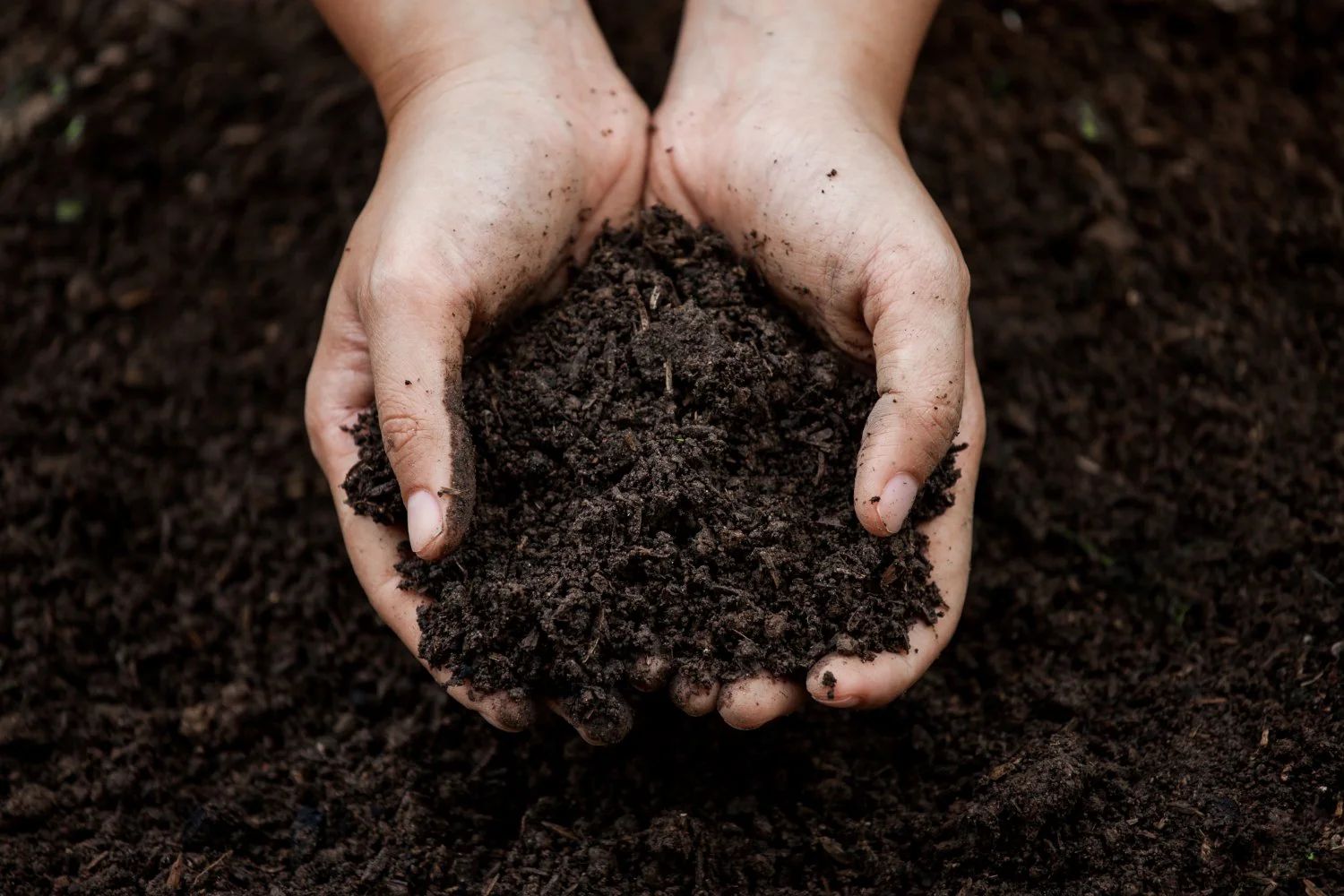February 2024
As multiple types of plants, including fruit and vegetable crops, depend on animals for pollination, pollinators are vital elements for human survival. Food & Agriculture Organization of the United Nations (FAO) estimates that about 75% of the world’s agricultural products, known as human food, depend on pollinating insects.
However, modern food systems like monocultures, industrialisation of farming practices, and imprudent use of pesticides are proven to threaten the survival of many pollinators. In particular, bees are at risk of extinction. Indeed, at an individual level, we may not alter big-scale agricultural policies directly.
Even so, there are simple actions each of us can take which can contribute to the protection of pollinators and, consequently, our survival.
Pollination & POLLINATORS
The reproduction of plants demands pollen movement from a male flower to a female one. A pollinator is an animal that carries out this procedure.
Pollinators can be widely distinguished as insects or vertebrates, with the former being the most significant type.
Insect pollinators are, first and foremost, bees, but they can also be wasps, ants, flies, butterflies, moths and beetles.
Vertebrate pollinators can be bats and birds such as hummingbirds, mammals like monkeys and rodents, and reptiles like lizards.
IMPORTANCE OF POLLINATORS FOR HUMANS
With their life-task to pollinate pollinators secure human existence.
Pollination of crops
One of the most significant contributions to human existence is pollinators’ property to cross-pollinate flowers. Especially honey bees pollinate flowers while collecting pollen and nectar for their honey-making process. As a result, pollinators are critical factors in crop production, which means human food availability.
Biodiversity conservation
The crucial role of pollinators in the reproduction of flora contributes to adequate food sources and secures plant biodiversity. As many wild plant species depend exclusively on pollinators for reproduction, thanks to their contribution, they manage to be conserved and offer their wide range of valuable properties to humans and the whole ecosystem.
Economic value
Many food-delivering plants, such as strawberries, raspberries, apples, pumpkins, cucumbers, peas and many more, depend exclusively on insect pollination, so the exorbitant costs of artificial pollination are being avoided.
WHAT SOCIETY CAN DO TO PROTECT POLLINATORS?
Here is what we can do to protect and care for our pollinators.
Make cities greener
Local authorities can create habitats for pollinators. For example:
Planting trees alongside city streets,
Constructing green spaces like parks, greened traffic islands and verges.
or creating green bus stop rooftops.
Plus, local authorities can restore the pollinators’ population by establishing public pollinator farms and encouraging citizens' participation, such as volunteering in tree planting activities or caretaking in pollinator farms.
Create Sustainable Agrifood Systems
To protect the well-being of pollinators and promote healthy agrifood systems, the agrifood sector is called to adopt a sustainable approach. That includes for example:
MINIMISING THE USE OF PESTICIDES
A measure that successfully supports the biodiversity conservation of pollinators is the minimalisation of pesticide application.
Natural and biological control use is expanding in countries with serious pollinator extinction threats, even in unusual ways. For example, pioneer farmers across China use specially bred ducks in rice paddies to combat insects and weeds in an eco-friendly way. This approach protects pollinators and beneficial soil fauna and improves soil quality.
PRACTICING POLYCULTURE
Polyculure grows more than one crop species together in the same place simultaneously. When farmers turn to cultivate different crops, they contribute to conserving natural habitats and various food sources for pollinators.
WHAT INDIVIDUALS CAN DO TO PROTECT POLLINATORS
There is so much we can do individually to protect pollinators.
Let’s get started:
MAKE YOUR PURCHASE INSECT FRIENDLY
Yes, you can protect insects when shopping. The German Nature and Biodiversity Conservation Union (Nabu) gives the following tips:
OPT FOR ORGANIC FRUIT & VEGGIES
By doing so, we support organic agricultural systems that avoid the use of pesticides and contribute to the pollinators’ protection and the restoration of ecosystems. Here, we have compiled tips on How to Spot Organic Produce → and many more details on Organic Produce →.
Or, watch out for produce from regenerative working farms.
BUY LOCALLY & SEASONALLY
This supports local agriculture; fewer greenhouses are needed for indoor cultivation, and polycultures in the fields are encouraged. In addition, we also reduce the transportation distances of food.
Here, you can dive deeper into Local → & Seasonal Produce →.
IF MEAT, THAN ORGANIC MEAT
Reduce your meat consumption. If you buy meat, make sure it is organic. The animals are out on pasture more often, and grazing encourages insects, as the grazing areas are usually not mown all at once.
Here is deeper info on Sustainable Meet Consumption →.
EAT LOCALLY HONEY
Buy from the beekeeper around the corner. Honey bees are essential for pollinating many plants, and their beekeepers often also help wild bees. Beekeepers do public relations work and raise awareness of insect problems.
CHOOSE JUICES MADE FRAOM ORCHARDS FRUIT
Orchards consist of tall trees of different ages, often of different types of fruit.
Create green spaces in cities.
Creating as much green space as possible in our gardens and balconies is vital for offering habitats for pollinators in urban places. Remember that there are ways for even a few m2 of space to be altered into a beautiful oasis of native plants and flowers, which comprise small habitats for many species.
Get help from the experts; your national nature conservation organisation can support you with tips on how to get started.
Plus, many blogs, books and websites provide many ideas and inspiration.
And consider initiating public activity.
Initiate greening the rooftop of the bus stop closest to you.
What about greening the traffic refuge in front of your house with wildflowers, herbs, and maybe a little bush!?
Offer bees nesting places & INSECT HOTELS.
One of the strategies to increase insect populations is by creating artificial nests and offering insect hotels.
An example of an urban contribution to protecting honey bees is the social project Bybi in Copenhagen (Denmark). It is about producing urban honey by placing hives around the city, providing a home for roughly 70.000 bees. Anyone can join the project.
Get informed about any possible similar organised actions in your area, or take individual action and offer nesting spots for bees on your rooftop or garden.
Your national or local nature conservancy organisation provide more information on getting started.
Plant native flowers
According to scientists, planting native flowers and plants that provide food for pollinators is a simple but effective measure to stop insect mortality and promote Biodiversity → in a region.
Platforms like Fantastic Gardeners provide an overview of domestic flowers sorted according to climate zones, while on Wikipedia, you can find them sorted according to regions.
You can actively participate in learning and spotting domestic flowers in your area by joining organisations like Project Noah, which asks citizens to support them in collecting data on domestic Wildlife → by spotting domestic flowers in their area.
Avoid pesticides in our gardens & on our balconies
Abstaining from pesticide application on our domestic plants protects not only pollinators but also our health from the intake of toxic chemicals, both during application and during consumption of crops.
Learn about Eco-Friendly Plant-Keeping →.
Use natural insect repellents.
Instead of killing insects like mosquitoes and flies, you can resort to friendlier control methods. Here are some examples to help you get started:
PLANTING HERBS
Did you know that many herbs have natural bug-repellent properties? Try to plant peppermint, basil, rosemary, lavender or verbena in your garden or balcony. This way, you get rid of annoying insects in an eco-friendly way and create a small habitat for pollinators, seasoning production for your cooking!
USING WATER TO FIGHT WASP ATTACKS
Wasps do not like water. If they become a nuisance when eating outdoors, a well-rinsed deodorant sprayer filled with tap water will help repel the uninvited guests by simply spraying it on them as needed.
MAKING HOMEMADE BUG SPRAYS
Many herbal and citrus essential oils, as well as garlic and cinnamon, are substances known to apply as natural insect repellents. Check out Pinterest or Instagram for DIY recipes. Check our sources ↓ to find some bug spray recipes from Lifestylesimple or Healthline.
REACH OUT TO OTHERS, INFORM, INSPIRE
Participate in actions that aim to raise awareness of the importance of pollinators and how each one of us can contribute to their protection.
Especially during World Bee Day - 20th May, governments, organisations, local authorities and concerned citizens worldwide are given a great chance to promote actions for protecting and conserving pollinators and their habitats, supporting their well-being and abundance. Make sure to be alert for events during that time.
LEarn more
Check our sources: Bibliography →












